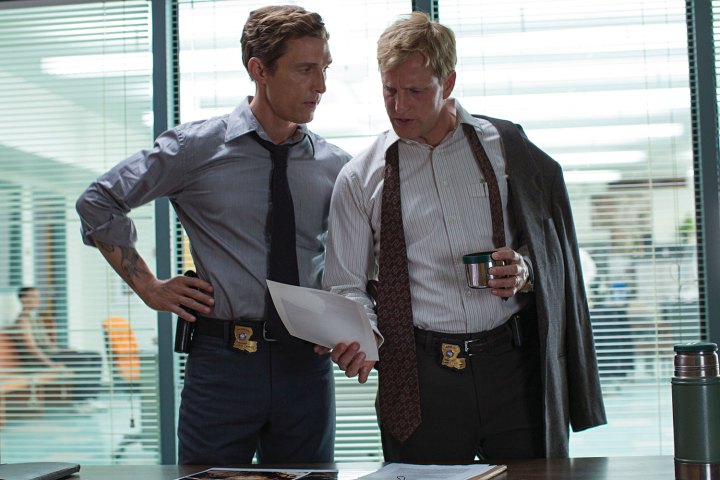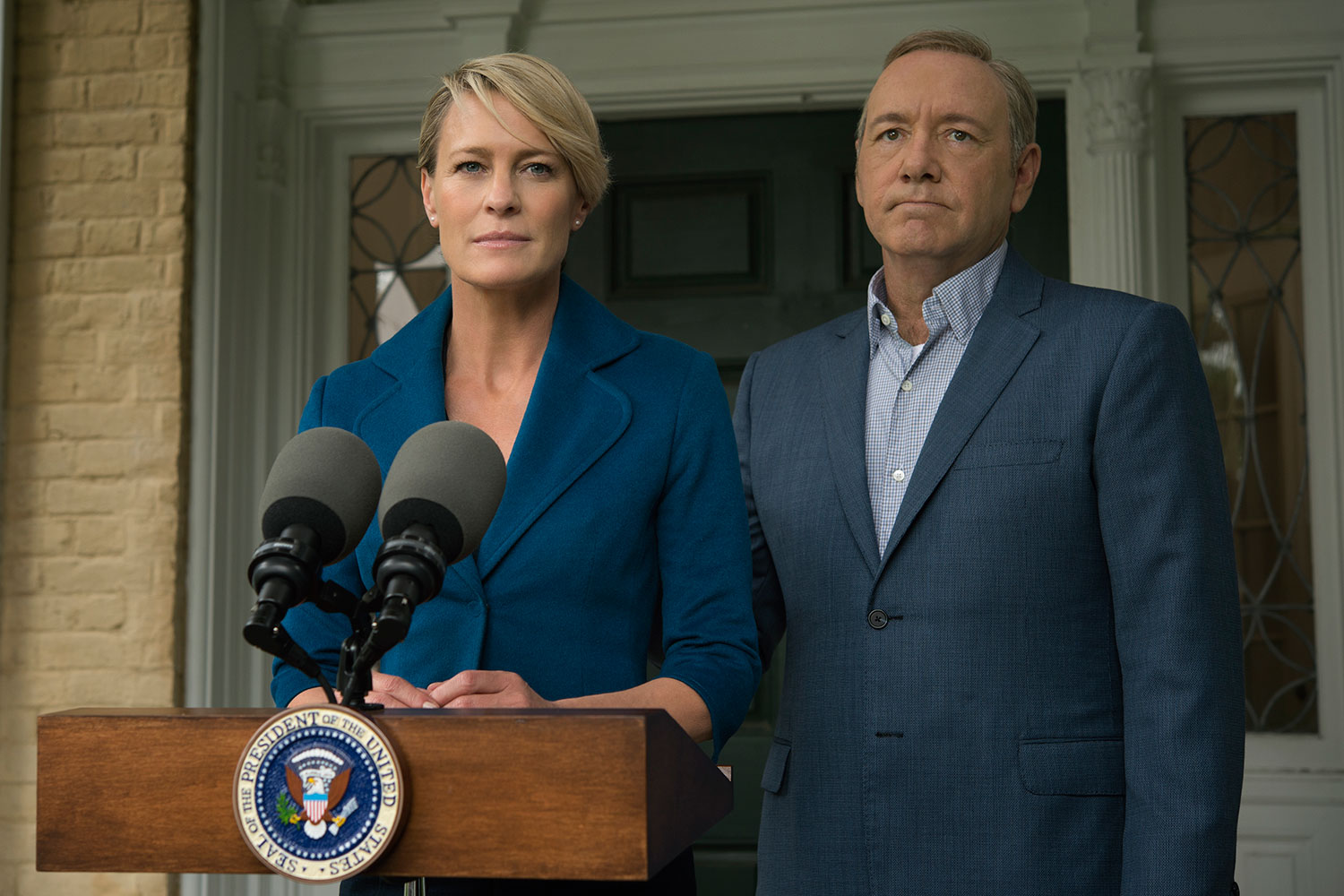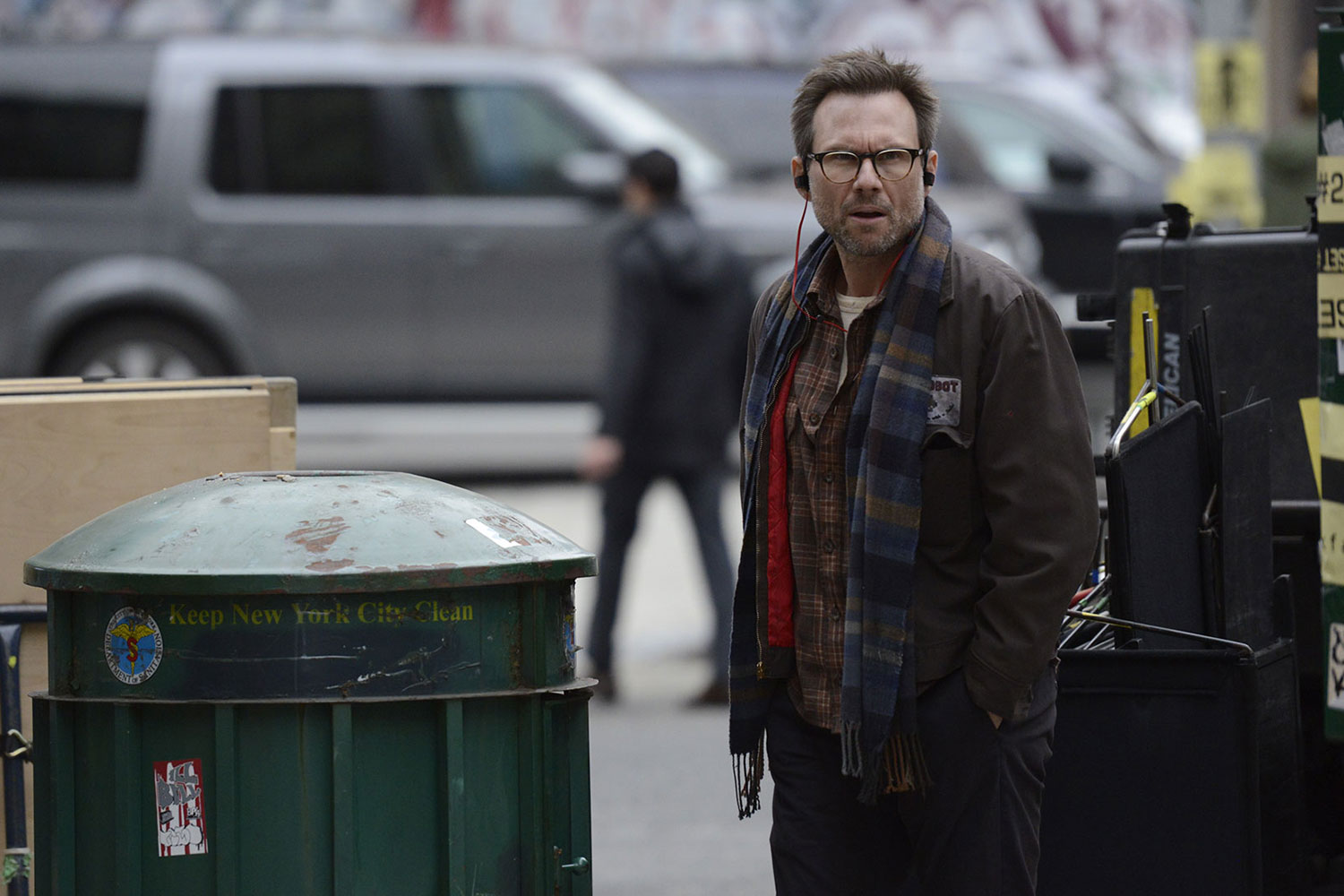
The rise in TV quality
Last summer, Variety interviewed several A-listers appearing in television series: Jessica Lange (American Horror Story, FX) Taraji P. Henson (Empire, Fox), Michael Sheen (Masters of Sex, Showtime), Julianna Marguilies (The Good Wife, CBS), Viola Davis (How to Get Away With Murder, ABC), and Clive Owen (The Knick, Cinemax), to name a few. They all declared that it’s this supposed “golden age of television” and cited “the material” as the key that unlocked the TV world. Owen noted that, while he wasn’t actively looking to do TV, he “couldn’t put down the script for ‘The Knick.”
“Television is raising the bar on the character-driven drama series.”
During his 2014 Critics’ Choice Awards acceptance speech for Best Actor in a Drama Series for HBO miniseries True Detective, accomplished Hollywood film actor Matthew McConaughey said that, “television is raising the bar on the character-driven drama series.”
In an interview last year with The Independent, veteran film actor and seven-time Academy Award nominee Dustin Hoffman sang the praises of television. “I think right now, television is the best that it’s ever been,” he said. “And I think that it’s the worst that film has ever been – in the 50 years I’ve been doing it.”
Jane Fonda, who appears on Netflix original series Grace & Frankie, says actors simply want to go “where the good writing is.”

And the good — no, great — writing has made its way to television, across genres, from drama to comedy; and through various platforms, from broadcast network TV to premium networks and streaming originals.
Who’s making the move?
Screenwriters, directors, and producers, like J.J. Abrams, known for directing such massive movie blockbusters as Star Trek, Mission Impossible III, and Star Wars: The Force Awakens, have long recognized the potential of the television format. Abrams’ hit series Lost (2004-2010), which won two Emmys, could never have been as compelling and complex in the movie format as it was able to be as a television series, which ran for a total of 121 hours over six seasons. Shows like Dexter, Breaking Bad, The Walking Dead, and Game of Thrones have proven that the quality of writing in the television space has dramatically improved from the days of cookie-cutter cop dramas and mystery thriller programming.
A movie gets one shot at being a hit or a miss.
The list of great shows, and the Hollywood actors leading them, is, to say the least, extensive. In 2014, Academy Award-winner Halle Berry moved over to TV land heading up the cast of the now-cancelled CBS show Extant. In the same year, McConaughey picked up awards for both film (Dallas Buyers Club) and television (True Detective.) The second season of that series subbed in two more A-listers: Rachel McAdams and Colin Farrell. Claire Danes has starred in all five seasons of popular Showtime series Homeland, James Spader heads up the cast on NBC’s The Blacklist, and Robin Wright and Kevin Spacey are a political power couple on Netflix’s House of Cards. Yes, the same Wright from The Princess Bride and Spacey from Usual Suspects. And we’re only just scratching the surface.
More recently, Christian Slater, an accomplished movie actor with films like Heathers (1989) and Pump Up the Volume (1990) to his credit, joined the cast of the the popular USA Network show Mr. Robot, which begins its second season this July. He told Rolling Stone that he simply wanted to “take chances” and “do things that scare the hell out of me.”
Clearly, great writing and storytelling is a significant part of the shift, but there’s more to why TV is looking more attractive to big-name actors than ever.
More character and plot development
Television affords an actor the opportunity to deliver a more nuanced, layered portrayal of a character. Viewers, notes Entertainment Weekly’s Melissa Maerz, can “get to know characters on an emotional level that your average feature-length movie can’t sustain.” Take a show like Breaking Bad or Dexter: many fans found themselves torn over constantly changing feelings of disgust, admiration, and pity for the lead characters as the series progressed through each season.
Series lengths are more attractive
While broadcast TV series typically have more than 20 episodes in a season, the latest premium content, including streaming originals, chop that almost in half to about 13, thus making the television genre far more palatable to an actor. It also allows for more risk-taking – while a great television show may have a bad season, a stellar one to follow can save it. A movie, on the other hand, gets one shot at being a hit or a miss.
Viewers have spoken
Attention spans have waned, and viewers are busy. We like to watch at home, and watch at our own pace. In a 2013 Statista survey, 57% of U.S. respondents said they preferred to watch movies at home, versus just 21% who said they prefer the theater. In 2014, U.S. box office numbers dropped 5.2% – the biggest decline since 1995. For actors to get face time with those viewers who aren’t going to the movies as often, the television format is a viable way to do so.
Action and animation are dominating the big screen
Moviemakers have increasingly been leaning toward big budget action films, and animated voice-over roles. The top-five movies in 2015, according to worldwide box office numbers, were Star Wars: The Force Awakens; Jurassic World; Furious 7; The Avengers: Age of Ultron, and Minions – four big-budget action flicks and an animated feature. Compare this to the top-10 time-shifted shows for 2015, as per Nielsen figures, which were all stellar dramas Fargo; True Detective; Better Call Saul; Bates Motel; and Game of Thrones.

Meanwhile, actors looking for films with more depth encounter what the LA Times refers to as “Oscar bait.” In other words, if Brad Pitt, Meryl Streep, Daniel Day Lewis, or Eddie Redmayne isn’t in it, chances are, the film won’t give the actor the kind of exposure they may be seeking.
Streaming services offer new options
Arguably one of the biggest drivers here is the rise of subscription-based streaming services, which have more latitude since they don’t rely on large studios and advertising. That, in turn, gives actors more freedom in the projects they choose. It also provides exposure to a large consumer base without worrying about box office numbers, linear TV subscriptions, or even ratings. Variety calls streaming services like Netflix, Amazon, and Hulu “a virtual playground for creativity.” This has attracted actors like Fonda, Spacey, and Wright, plus others like James Franco, who appears in Hulu streaming original miniseries 11/22/63, which debuted earlier this year.
The golden age continues
Is it really the Golden Age of Television? We’d argue it’s the Golden Age of Entertainment … period. And actors of all kinds are looking to capitalize on this era in the most effective ways possible. With compelling TV content driving viewers to tune in religiously each week, speak passionately about episodes at work, and share viewpoints on social media, any actor would be silly not to partake.





